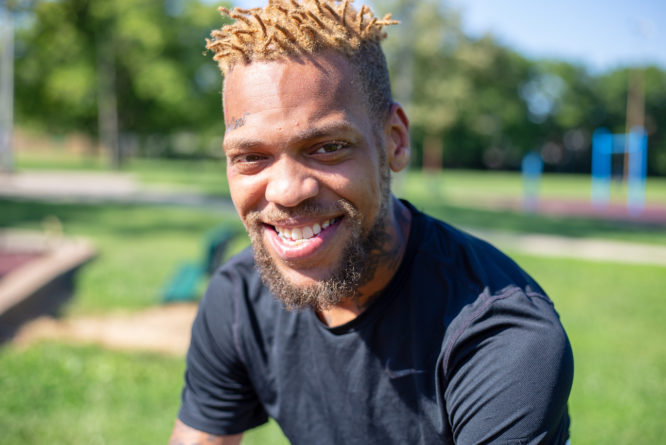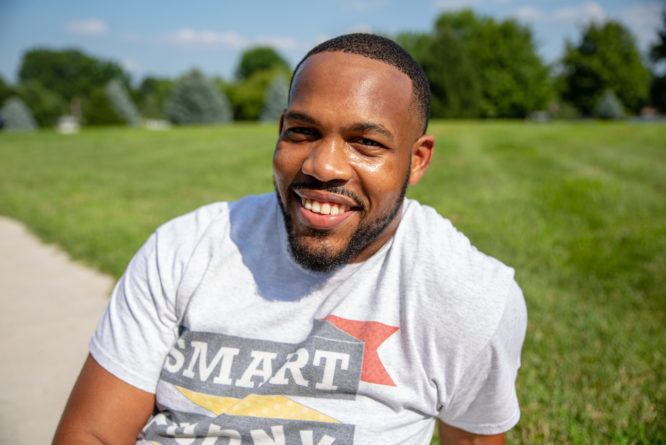Strengthening Anti-Bias and Cultural Competency
The expert testimony, research, scholarship, and lived experience collected by the Commission revealed the following:
- In 2014, a Gallup poll found that 60 percent of White Americans expressed more trust in police than nonwhites did (49 percent) (McCarthy, 2014).
- In 2014, Black drivers in Missouri were 75 percent more likely than White drivers to be stopped by police (Koster, 2014). The difference was only 31 percent in the year 2000 (Koster, 2014). Also in 2014, Black drivers were stopped on Missouri roads at a rate 66 percent greater than what was expected, given their proportion of the population of people aged 16 and older (Koster, 2014).
- Besides data on motorist stops, “search rate” data is used to assess racial profiling in policing (Koster, 2014). In 2014, Black drivers were 1.73 times more likely and Hispanics were 1.90 times more likely to be searched than Whites (Koster, 2014). Although Black drivers were more likely to be searched in 2014, White drivers were more likely to have contraband discovered by police in their cars during searches than Black or Hispanic drivers (Koster, 2014).
- According to the U.S. Department of Justice’s 2015 report on the Ferguson Police Department, Black people in Ferguson accounted for 88 percent of all cases of reported police use of force from 2010 to August 2014 (Department of Justice, 2015). Black people in Ferguson accounted for all of the documented cases of uses of force involving a canine bite during that time as well (Department of Justice, 2015). Also from 2010 to August 2014, Black people in Ferguson accounted for 95 percent of all Manner of Walking charges, 94 percent of all Failure to Comply charges, 92 percent of all Resisting Arrest charges, 92 percent of all Peace Disturbance charges, and 89 percent of all Failure to Obey charges (Department of Justice, 2015).
- The stereotype of Black Americans as violent and criminal has been well documented by social scientists in nearly 60 years of research (Eberhardt, et. al., 2004). Research has led social psychologists to conclude that the bias that happens during policing today is more likely to manifest as implicit or unconscious bias instead of explicit bias (Fridell, 2015). Implicit biases include the fears, feelings, perceptions, and stereotypes that exist in a person’s subconscious, regardless of a person’s acknowledgement of the biases (Gove, 2011). In policing, a relevant bias is the automatic and implicit connection between crimes and minorities (Eberhardt, et. al., 2004). For example, Dr. Lorie Fridell explains in “Fair and Impartial Policing” that implicit bias might “manifest among agency command staff who decide (without crime-related evidence) that the forthcoming gathering of African American college students bodes trouble, whereas the forthcoming gathering of white undergraduates does not” (Fridell, 2015). Research has shown that police officers can lessen or eradicate the effects of implicit biases on their behavior by becoming aware of these biases through proper training (Correll, et. al., 2002).
Realizing the shared goal between the law enforcement community and the civilian community, these findings, these findings prompted the Commission to draft calls to action to strengthen anti-bias training and improve cultural competency with the hope that these calls will help eliminate biased policing practices and improve citizens’ trust and confidence in the police.
To that end, the Commission issues the calls to action below.
Take Action
FTF Co-Chairs and Community Partners Call for Swift Policy Action
Residents Call for Policy Change, Regional Leaders Must Rise to the Challenge Forward Through Ferguson co-chairs, Rebeccah Bennett and Zachary Boyers, and 30 community partners call on policy and decision makers to deliver swift action on Ferguson Commission Calls to Action. Read the full statement on Medium, or download a pdf here. “Unfortunately, we’ve been…
Opportunity for a New Approach to Public Safety in St. Louis
An open letter to Mayor Lyda Krewson from Rebeccah Bennett and Zachary Boyers, Co-chairs of Forward Through Ferguson, on the public safety opportunity in front of our region. Click here to download a pdf of the open letter. Mayor Krewson, The retirement of Police Chief Sam Dotson represents a new day for public safety in St. Louis….
Suggested Reading List
Department of Justice. (2015). Investigation of the Ferguson Police Department. United States Department of Justice. Retrieved fromhttps://www.justice.gov/sites/default/files/opa/press-releases/attachments/2015/03/04/ferguson_police_department_report.pdf
President’s Task Force on 21st Century Policing. (2015). Interim Report of the President’s Task Force on 21st Century Policing. Office of Community Oriented Policing Services. Retrieved from https://www.cops.usdoj.gov/pdf/taskforce/taskforce_finalreport.pdf
Citations
- Correll, J., Park, B., Judd, C.M., Wittenbrink, B.W. (2002). The police officer’s dilemma: Using ethnicity to disambiguate potentially threatening individuals. Journal of Personality and Social Psychology. Retrieved from https://fairandimpartialpolicing.com/docs/pob2.pdf
- Eberhardt, J.L., Goff, P.A., Purdie, V.J. and Davies, P.G. (2004). Seeing Black: Race, crime, and visual processing. Journal of Personality and Social Psychology. Retrieved from https://web.stanford.edu/~eberhard/downloads/2004-SeeingBlackRaceCrimeandVisualProcessing.pdf
- Fridell, L. (2015). Fair and impartial policing. Retrieved fromhttps://static1.squarespace.com/static/54722818e4b0b3ef26cdc085/t/554e494ae4b04b0242f01a91/1431193930493/Extended_About+FIP_2015.pdf
- Gove, T. (2011). Implicit bias and law enforcement. The Police Chief. Retrieved from https://www.policechiefmagazine.org/magazine/index.cfm?fuseaction=display_arch&article_id=2499&issue_id=102011#7
- Koster, C. (2015). 2014 vehicle stops executive summary. Attorney General of Missouri. Retrieved from: https://www.ago.mo.gov/home/vehicle-stops-report/2014-executive-summary
- McCarthy, J. (2014). Nonwhites less likely to feel police protect and serve them. Gallup: Politics. Retrieved fromhttps://www.gallup.com/poll/179468/nonwhites-less-likely-feel-police-protect-serve.aspx
- Stevenson, B. (2006). Confronting mass imprisonment and restoring fairness to collateral review of criminal cases. Harvard Civil Rights-Civil Liberties Law Review. Retrieved from https://www.law.harvard.edu/students/orgs/crcl/vol41_2/stevenson.pdf


